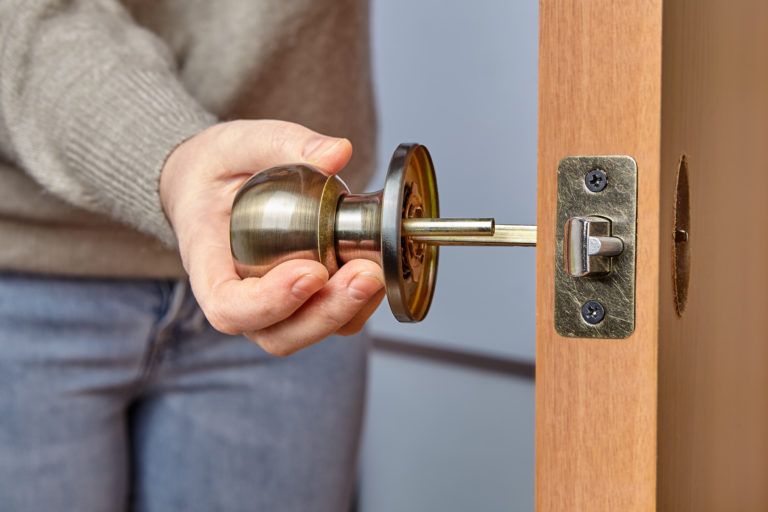Frozen locks and doors are a common and frustrating issue during the winter season. Whether it’s your car, home, or an outdoor lock, icy conditions can make access challenging. Follow these tips to ensure your locks and doors remain functional in freezing weather.
Protect Your Locks with Lubrication Before Frost
Using a silicone-based lubricant or graphite powder is an easy way to protect locks from freezing. These products create a moisture barrier, reducing the risk of ice buildup. Apply the lubricant inside the lock before the cold sets in, avoiding water-based options that may freeze. Regular reapplication during winter will keep your locks in top condition.
Secure Locks with Overnight Protection
Protect outdoor locks on gates or vehicles by covering them to prevent moisture and freezing. Plastic bags or commercial lock covers secured tightly with rubber bands work well to shield locks from icy weather.
Keep Your Car Safe with a Cover or Door Shield
Protecting your car’s locks and doors from freezing is easier with a car cover or door protector. These tools keep ice, frost, and snow from building up on the surface, including locks and seals. Ensure the covers are fastened firmly and made from weather-resistant materials for lasting effectiveness.
Deicing Products: A Proactive Winter Solution
De-icing sprays work well beyond emergencies—they’re great for preventing ice buildup on locks and doors. Apply a thin layer to locks and door seams before a snowstorm or temperature drop to keep them functioning smoothly.
Maintain Dry Locks for Winter Protection
De-icing sprays work well beyond emergencies—they’re great for preventing ice buildup on locks and doors. Apply a thin layer to locks and door seams before a snowstorm or temperature drop to keep them functioning smoothly.
Preserve Door Seals for Better Protection
The buildup of ice around door seals is a primary reason for frozen doors. Regularly clean the seals to remove debris and apply a protective layer of rubber conditioner or petroleum jelly to prevent moisture.
Avoid Freezing by Parking in Covered or Warm Locations
To minimize the risk of frozen locks and doors, park your car in a garage or other sheltered area whenever you can. This reduces exposure to freezing temperatures and protects your vehicle.
Prevent Freezing with Alcohol or Sanitizer
To quickly prevent ice formation, apply rubbing alcohol or hand sanitizer around locks and seals with a cotton swab or cloth. Alcohol works by reducing water’s freezing point, but use sparingly to avoid material damage over time.
Carry a Lock Cover in Your Winter Survival Kit
If frozen locks are a recurring issue, consider using a dedicated lock cover. These small and portable devices effectively prevent moisture buildup and freezing, especially on outdoor padlocks and car locks.
Use Gentle Methods Instead of Forcing Locks
When dealing with a freezing lock or door, excessive force can cause damage. Choose a gentle approach, like applying heat with a hair dryer or heating pad, to thaw it safely.
Make Routine Inspections of Locks and Doors
Regular inspections of your locks and doors are crucial for maintenance. Look for wear, dirt, or ice accumulation, and take a moment to clean and lubricate them to avoid wintertime freezing issues.
Use Heated Key Accessories for Winter Convenience
For those using traditional keys, heated key fobs or covers are a great solution for frozen locks. These devices warm the key to melt ice in the lock, providing a quick and effective way to prevent freezing. They’re lightweight, easy to use, and highly practical for cold-weather areas.
Avoid Moisture to Keep Locks Functioning Properly
Moisture is the primary factor behind frozen locks. To avoid freezing, always keep locks and doors dry. After washing your car in the winter, be sure to dry the locks and door seals carefully to prevent water from freezing.
Use Weather Stripping to Prevent Cold and Moisture
Adding weather stripping to your home doors is an effective long-term solution. Not only does it block cold drafts, but it also stops moisture from collecting around the edges, lowering the risk of freezing.
Avoid Frozen Windows That Interfere with Door Operations
In some cases, frozen windows can impact how doors function, particularly in cars. Use a frost guard on your windshield and windows to prevent ice, which can indirectly affect door operation.
Dealing with frozen locks and doors can be frustrating, but with these preventive measures, you can avoid the inconvenience and stress of winter. Regular lubrication, proper covering, and moisture control will ensure your locks and doors function seamlessly in the cold.

